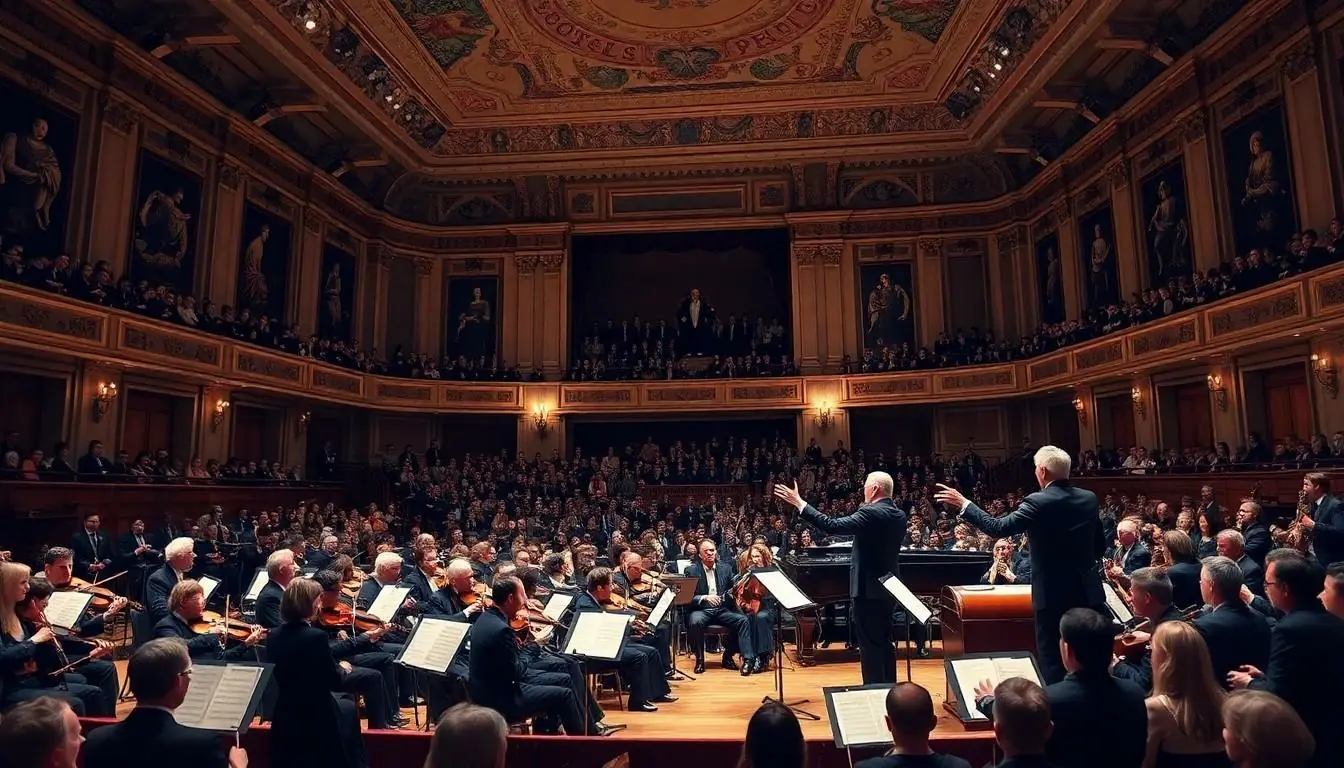Hip hop clothing brands have evolved from simple streetwear to a global phenomenon, blending culture, style, and self-expression. With roots deeply embedded in music and art, these brands reflect the vibrant energy of the hip hop community. They don’t just sell clothes; they tell stories and create identities that resonate with fans around the world.
Table of Contents
ToggleOverview of Hip Hop Clothing Brands
Hip hop clothing brands emerged from street culture, shaping fashion trends globally. Styles include baggy pants, oversized shirts, and sneakers, all representing a unique urban aesthetic. Popular brands like FUBU, Phat Farm, and Rocawear gained recognition in the 1990s, cementing their place in hip hop history.
Streetwear continues to evolve, with new players like Off-White and Fear of God appealing to younger audiences. Genres of music and art significantly influence designs, reflecting the stories and experiences of artists. Many brands collaborate with musicians, enhancing their visibility and authenticity within the culture.
Innovative designs often incorporate bright colors, bold graphics, and logo-centric items, capturing attention on and off the stage. High-profile endorsements from artists amplify brand reputations, leading to widespread consumer interest.
Inclusivity and diversity remain vital in the hip hop clothing scene. Brands frequently showcase diverse models, promoting a sense of unity across cultures. Eco-friendly initiatives are also becoming more apparent, with some brands using sustainable materials in their production processes.
Success in this market stems from understanding cultural shifts and trends. Many brands leverage social media platforms to engage with fans directly, fostering community and loyalty. Novelty and distinctiveness attract consumers who wish to express their individualism through fashion.
Overall, hip hop clothing brands represent more than fashion; they embody a movement that resonates across generations. Each collection offers a glimpse into the evolving narrative of hip hop culture.
Popular Hip Hop Clothing Brands
Hip hop clothing brands play a vital role in shaping fashion trends and reflecting the culture’s vibes. Here are some of the most notable brands in the industry.
Brand A
FUBU stands out as a pioneering brand, launched in 1992 by Daymond John and his partners. The label gained popularity for its distinctive logo and catchy slogan, “For Us, By Us.” FUBU resonated with urban youth and often featured bold colors and oversized styles. Apparel includes shirts, jackets, and hats that emphasize individuality. Collaborations with prominent artists helped solidify FUBU’s status in hip hop culture and contributed to its lasting influence.
Brand B
Rocawear emerged in 1999, founded by Shawn “Jay-Z” Carter and Damon Dash. Rocawear reflects its founders’ influence and commitment to urban fashion. Signature items encompass graphic tees, denim, and sportswear with eye-catching designs. Artists have frequently promoted Rocawear, further embedding the brand into hip hop’s fabric. Sustainability has also become a focus for Rocawear, appealing to environmentally conscious consumers while maintaining its relevance.
Brand C
Off-White, founded by Virgil Abloh in 2012, quickly gained recognition for its innovative designs and streetwear aesthetics. The brand blends luxury with urban culture, featuring distinctive “slash” graphics and bold branding. Off-White’s collections often include oversized garments, unique cuts, and striking color palettes. Collaborations with artists and high-end companies enhance its appeal, making Off-White a favorite among fashion-forward individuals. This brand captures the essence of contemporary hip hop, merging artistic expression with cutting-edge style.
Emerging Hip Hop Clothing Brands
Emerging hip hop clothing brands continue to shape the landscape of streetwear, bringing fresh designs and cultural relevance. These brands connect closely with contemporary trends and the evolving hip hop culture.
Brand D
Brand D offers innovative designs that capture the essence of urban youth. Established recently, the brand quickly gained traction by collaborating with upcoming hip hop artists. Streetwear staples like oversized hoodies and graphic tees feature prominently in their collections. Bright colors and expressive graphics reflect the vibrancy of hip hop culture. Social media campaigns engage a younger audience, highlighting the brand’s commitment to inclusivity and cultural resonance. Sustainability remains a priority; eco-friendly materials are integrated into many products, appealing to mindful consumers. Overall, Brand D represents a fresh voice in the hip hop clothing scene.
Brand E
Brand E stands out through its unique blend of high fashion and streetwear. Launched with a clear mission, it strives to redefine luxury within the hip hop community. Signature pieces often showcase bold designs and intricate details, attracting fashion enthusiasts. Collaborations with renowned artists enhance its visibility and credibility in the market. Innovative marketing strategies leverage digital platforms to build a strong community around the brand. Quality craftsmanship ensures the longevity of each piece, aligning with consumer values for sustainability. In essence, Brand E bridges the gap between luxury fashion and hip hop culture, continually pushing boundaries.
Trends in Hip Hop Fashion
Hip hop fashion showcases constant evolution, reflecting changing cultural dynamics and emerging trends.
Streetwear Influence
Streetwear plays a significant role in hip hop culture. Loose-fitting jeans, oversized hoodies, and graphic tees became staples. Chunky sneakers and branded caps often complement these outfits. Notable brands continue to evolve designs that celebrate local street styles while reaching global audiences. Urban aesthetics convey strong messages, resonating with youth. Influential artists often set trends, creating a cycle of inspiration within the community. Engagement with street culture fosters creativity, pushing brands to explore innovative materials and cuts. Many consumers now seek comfort alongside style, making practicality a priority. This shift ensures that streetwear remains at the forefront of fashion conversations.
Collaborations and Partnerships
Collaborations and partnerships drive growth in hip hop fashion. Mixing distinct artistic visions creates unique pieces. Renowned musicians often join forces with established brands to launch limited-edition lines. These collaborations generate excitement and anticipation among fans. Celebrities elevate brand visibility, capturing attention across social media platforms. Successful partnerships can lead to increased sales and brand loyalty. Alongside major labels, emerging designers leverage partnerships to gain recognition. Innovative collaborations merge various genres, expanding market reach and attracting diverse audiences. Partnerships provide a competitive edge, connecting fashion directly to hip hop culture.
Hip hop clothing brands have profoundly impacted fashion and culture, reflecting the vibrant essence of the community. As these brands continue to evolve, they embrace inclusivity and sustainability while celebrating diversity in their designs. The connection between music and fashion remains strong, with collaborations amplifying their relevance in today’s market.
Emerging brands are pushing boundaries and attracting younger audiences with fresh ideas that resonate with the hip hop lifestyle. The ongoing transformation of hip hop fashion showcases its ability to adapt to cultural shifts while maintaining its roots. This dynamic landscape ensures that hip hop clothing will remain a powerful force in the fashion world for years to come.



